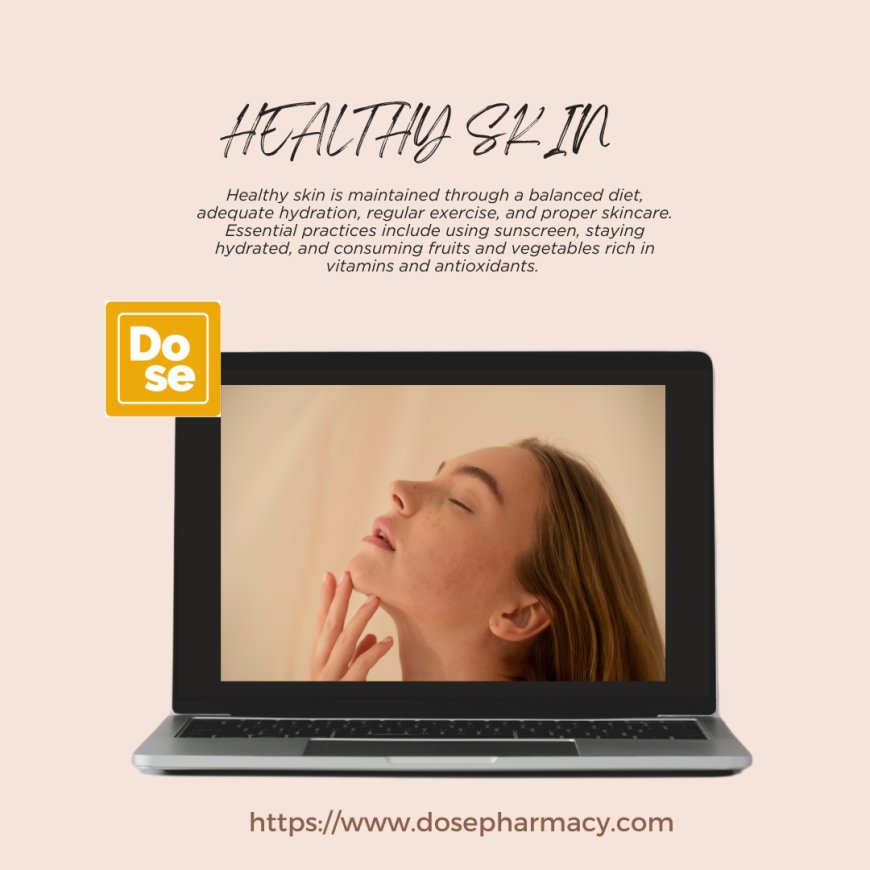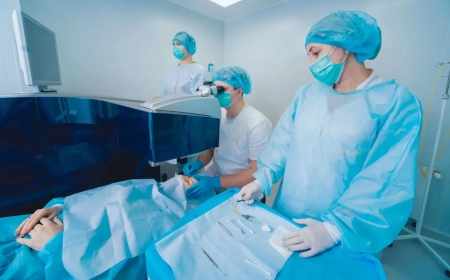Is Isotretinoin Safe for Long-Term Acne Treatment?
Isotretinoin is a revolutionary medication that has helped millions achieve clear, healthy skin when all other treatments failed.

Acne is one of the most common skin concerns worldwide, affecting millions of teenagers and adults alike. For many, topical creams and oral antibiotics bring only temporary relief. But for those battling severe or resistant acne, Isotretinoin—a powerful derivative of Vitamin A—has become a game changer. Known for its ability to deliver long-lasting, sometimes permanent, results,Isotretinoin 40 mg is often considered the ultimate acne treatment.
However, its potency raises an important question: Is Isotretinoin safe for long-term use? This comprehensive article explores how it works, its benefits, potential risks, and whether extended use is a safe and effective option for maintaining clear skin.
What Is Isotretinoin?
Isotretinoin (commonly sold under brand names like Accutane, Claravis, or Absorica) is an oral medication primarily used to treat severe nodular or cystic acne that does not respond to conventional treatments. It belongs to a class of drugs called retinoids, which are derivatives of Vitamin A.
Unlike most acne treatments that simply target surface symptoms, isotretinoin works deep within the skin to address the root causes of acne — excess oil (sebum) production, clogged pores, inflammation, and bacterial overgrowth.
How Does Isotretinoin Work?
Isotretinoin targets all major factors responsible for acne formation. Its multi-action mechanism makes it one of the most effective acne medications ever developed.
-
Reduces Sebum (Oil) Production
Overactive sebaceous glands are one of the primary triggers of acne. Isotretinoin significantly shrinks these glands, leading to less oil production. Reduced sebum means fewer clogged pores and less bacterial growth.
-
Prevents Clogged Pores
Acne often begins when dead skin cells stick together inside the hair follicle, forming plugs. Isotretinoin normalizes the shedding of skin cells, preventing these blockages.
-
Kills Acne-Causing Bacteria
The Cutibacterium acnes bacteria thrive in oily environments. By reducing oil production, isotretinoin creates conditions that make it difficult for these bacteria to survive.
-
Reduces Inflammation
Isotretinoin has anti-inflammatory properties that help calm redness, swelling, and pain associated with severe acne lesions.
Together, these effects not only treat current acne but also help prevent future breakouts, making isotretinoin one of the most comprehensive solutions for severe acne.
Duration of Isotretinoin Treatment
A typical course of isotretinoin lasts 16 to 20 weeks (4–6 months), depending on acne severity and the dose prescribed. In some cases, dermatologists may recommend a second course after a break of several months if acne returns.
Because isotretinoin has long-term effects on the skin’s oil glands, many patients experience complete or near-permanent remission after just one course. However, a small percentage may need maintenance or repeat treatments.
This brings us to the central question — is isotretinoin safe for long-term or repeated use?
Is Isotretinoin Safe for Long-Term Use?
Yes, isotretinoin can be safe for long-term use under medical supervision, but it must be prescribed carefully and monitored closely due to its potential side effects.
Let’s break this down into key safety considerations:
1. Long-Term Skin and Oil Gland Effects
Isotretinoin permanently shrinks the oil glands. While this is beneficial for acne prevention, it can also lead to long-term dryness of the skin, lips, and eyes. Most patients adjust to these effects with proper hydration and skincare, but they may persist in some individuals.
2. Liver Health and Lipid Levels
Because isotretinoin is processed by the liver, long-term or repeated use requires regular monitoring of liver function tests (LFTs) and lipid profiles (cholesterol and triglycerides). Elevated liver enzymes or cholesterol levels are possible but usually reversible when treatment stops.
3. Bone and Muscle Health
Some studies suggest that prolonged use of isotretinoin may affect bone density or cause mild joint or muscle pain. These effects are rare and typically resolve after discontinuation. Patients using the medication for extended periods should discuss physical activity levels and calcium intake with their doctor.
4. Mental Health Considerations
There have been reports linking isotretinoin to mood changes, depression, and anxiety, though scientific evidence remains mixed. It’s crucial for patients and families to monitor mood and report any emotional changes during treatment.
5. Teratogenic Risks (Pregnancy Concerns)
Isotretinoin is highly teratogenic, meaning it can cause severe birth defects if taken during pregnancy. For this reason, women of childbearing potential must follow strict contraceptive measures and participate in pregnancy prevention programs like the iPLEDGE program in many countries.
Benefits of Isotretinoin in Long-Term Acne Management
Despite its potential risks, isotretinoin remains one of the most effective long-term acne treatments available today.
-
Permanent Reduction in Acne: Up to 85% of patients experience complete or near-complete clearance of acne after one course.
-
Improved Skin Texture: By preventing clogged pores and inflammation, isotretinoin often improves overall skin smoothness.
-
Reduced Acne Scarring: Early isotretinoin use in severe acne cases helps prevent deep scarring and pigmentation issues.
-
Long-Term Confidence Boost: Clear skin improves self-esteem and mental well-being, especially for individuals who have struggled with acne for years.
When managed correctly, the long-term benefits far outweigh the potential risks for most patients.
How Dermatologists Ensure Safe Long-Term Use
Dermatologists play a vital role in ensuring isotretinoin’s safety. They typically follow these precautions:
-
Baseline Testing: Before starting treatment, patients undergo blood tests to check liver function, cholesterol, and triglyceride levels.
-
Regular Monitoring: Follow-up visits every 4–6 weeks allow doctors to monitor side effects, adjust dosages, and review lab results.
-
Gradual Dosing: Starting with a low dose and gradually increasing helps minimize side effects.
-
Patient Education: Doctors provide clear instructions on contraception, skincare routines, and what symptoms to report immediately.
-
Post-Treatment Care: Even after stopping isotretinoin, periodic check-ups ensure that skin health and lab results remain stable.
Lifestyle and Skincare Tips During and After Isotretinoin Use
To enhance results and minimize side effects, patients should follow supportive lifestyle habits:
-
Stay Hydrated: Drink plenty of water and use moisturizing products regularly.
-
Protect from Sun Exposure: Use broad-spectrum sunscreen daily, as isotretinoin increases sun sensitivity.
-
Avoid Harsh Products: Steer clear of exfoliants, alcohol-based toners, or scrubs during treatment.
-
Eat a Balanced Diet: Limit fatty foods and alcohol to protect liver health.
-
Follow Medical Advice Strictly: Never share isotretinoin or adjust dosage without consulting your dermatologist.
When Should Long-Term or Repeat Isotretinoin Use Be Considered?
Long-term or repeat isotretinoin therapy may be appropriate for:
-
Patients with relapsing acne after completing a standard course.
-
Individuals with hormonal or genetic predisposition to acne.
-
Those who did not achieve full remission after the first treatment.
In such cases, dermatologists may prescribe low-dose or intermittent isotretinoin therapy, which can effectively maintain results with fewer side effects.
Conclusion
Isotretinoin is a revolutionary medication that has helped millions achieve clear, healthy skin when all other treatments failed. While concerns about long-term safety are valid, research and clinical experience show that isotretinoin is safe and effective when used responsibly under medical supervision.
Its powerful effects on oil production, inflammation, and acne-causing bacteria make it a cornerstone treatment for severe and persistent acne. However, due to its potential side effects, long-term use should always be personalized, monitored, and balanced with lifestyle and skincare support.
In essence, isotretinoin offers lasting skin clarity and confidence, but success depends on professional guidance, regular check-ups, and informed self-care. For those seeking a permanent solution to stubborn acne, isotretinoin remains one of the most trusted and transformative treatments in modern dermatology.



























